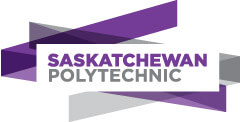About Media Production Diploma in Saskatchewan Polytechnic
Program Overview
Today’s media is all about content—stories, ideas, words, sounds, images, designs. And with more media outlets than ever before, demand for people with abilities to conceive, produce and deliver content is growing. If you’d like to be one of them, Saskatchewan Polytechnic’s Media Production program will appeal to you.
Media Production offers cutting-edge training in the “how-to” of content creation. Learn how to bring ideas to life, how to operate production equipment, how to prepare presentations, how to produce media programs.
You’ll graduate with the skills you need to work behind the cameras, in sound, lighting, editing, live streaming, location production and more.
Media Production is a two-year diploma program. The program is offered full-time at Saskatchewan Polytechnic Saskatoon campus. In the first-year of the program, you’ll learn the fundamentals of:
- still imaging
- formatting, manipulating and editing graphics
- audio recording and production
- scriptwriting
- electronic publishing
- basic video acquisition and editing
- lighting techniques and design
- presentation software and equipment
- web authoring
In the second-year, you’ll build your skills through hands-on training in:
- digital audio and video post-production
- multi-camera video production
- producing, post-production
- project management and scheduling
- live audio production
- portrait and product photography
- effective imagery
- streaming media
- motion graphics
Conceived, Written, Directed & Produced by … You
In the second year, you’ll produce several original productions, including dramatic, corporate and documentary projects. Talk about a great start to your portfolio!
Cutting-edge
Media Production takes your in-depth training into audio and video post-production. The program covers advanced production techniques and helps you develop management skills related to media production environments in video acquisition, post-production, sound recording and editing in computer based, digital, and HDTV formats.
Career and Salary Information
Your Career
As a Media Production graduate, you can take your career in many different directions. You could work as a media technician, recording technician, camera operator, video producer, editor, new media specialist, graphic editor, copywriter or producer.
Pursue a career in film and TV production, post-production, broadcasting or digital media. Go the corporate route and get involved in media production for large companies, educational institutions, health organizations and government agencies. Use your experience to build a career as a freelancer or start your own production company.
For more information about career opportunities, contact Student Employment Services at a campus nearest you.
Academic qualification equivalents:
- Grade 12 with a minimum 60% in each of the following subjects: English Language Arts A30, English Language Arts B30, Chemistry 30 and Pre-Calculus 30
English language requirements (one of the below):
- IELTS : Overall minimum score of Band 6.5 with a minimum score of 5.0 in each component.
- TOEFL : An overall minimum score of 81 on the Internet-based Test of English
- PTE : A minimum score of 63 with minimum component scores of 50.
Saskatchewan Polytechnic Highlights
| Type |
Public |
| Campus Setting |
Urban |
| Application mode |
Online and Paper mode available |
| Graduation rate |
62% |
| Acceptance rate |
96% |
| Number of Students |
16,008 |
| Overall cost of living |
14,762 CAD |
| Academic calendar |
Semester based |
| % of International students |
6% |
| Number of campuses |
4 |
| Medium of instructions |
English |
| Undergraduate Tuition fee |
14,044 CAD |
| Postgraduate Tuition fee |
16,426 CAD |
| Cost of living |
694 -1147 CAD per month |
Saskatchewan Polytechnic First-Year Tuition Fees And Living Expenses For International Students
Over the course of one academic year, the following graph displays tuition and living expense estimates in Canadian currency for one full-time international undergraduate student. Please bear in mind that these are only estimates; actual pricing will vary depending on your needs and preferences. Other factors to consider include currency changes, visa and study authorization fees, and vacations back home.
- For international students, the overall fees will range from:-
| Particulars |
Amount |
| Administrative fees |
50.00 to 150.00 CAD |
| Application fees |
150 CAD |
| Student association fee |
95.00 to 445.00 CAD |
| Non-refundable fee at the start) |
1,000 CAD |
| Tuition fee range |
6,195 to 18,089 CAD |
| Laboratory fee |
100.00 to 409.00 CAD with no fees for
some courses which do not have a lab service. |
| Books and Supplies |
200 to 3,725 CAD |
| Technology fee |
50 to 146 CAD |
- For a student of Saskatchewan Polytechnic the required financials (Cost of Attendance) can be:-
| Description of Financials |
Amount in CAD |
| Average cost of tuition |
11245.77 CAD |
| Cost of living |
10799.39 CAD |
| Application fee |
150 CAD |
| Estimated total (per year) |
22,195.16 CAD |
